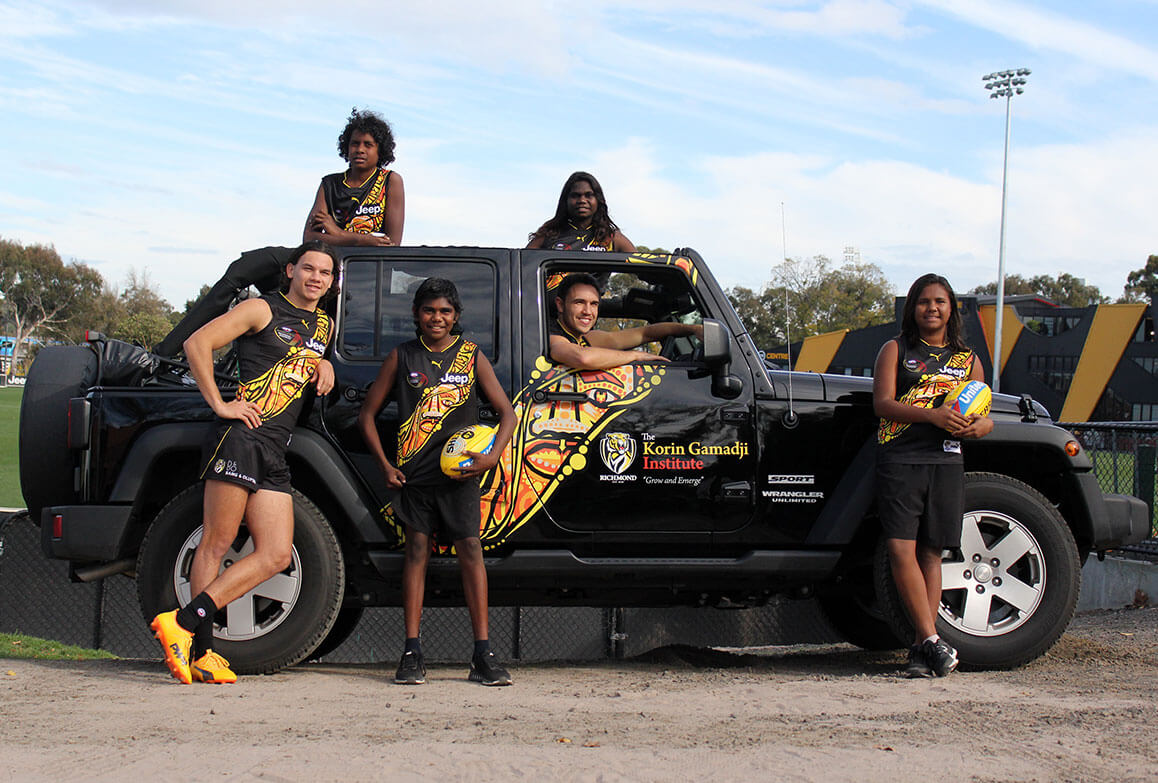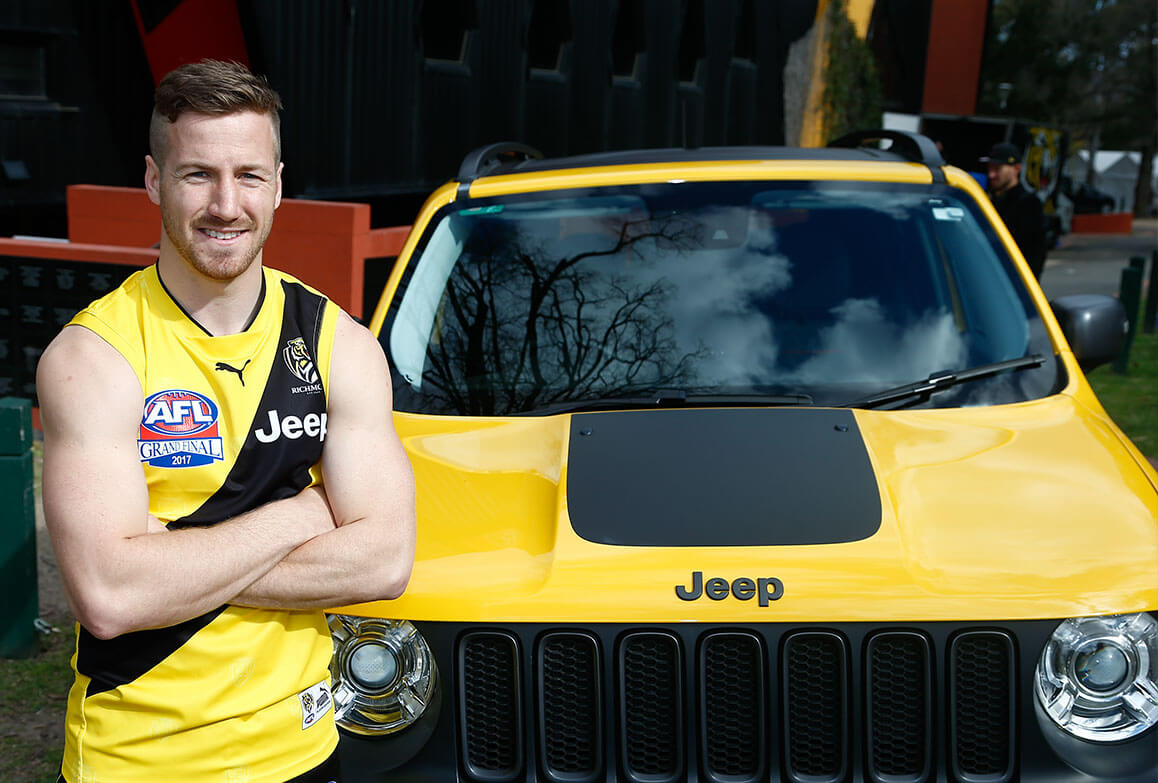The grand final win by the Tigers denied Toyota – sponsor of the highly favoured Adelaide Crows – a return to premiership status.
The win for the Tigers was also the first time in five years that the eventual AFL premier has had an automotive company as a sponsor, with off-road specialists Jeep the first since the Volkswagen-sponsored Sydney Swans take out the 2012 flag.
Last year’s premiers, the Western Bulldogs, were without an automotive sponsor for their drought-breaking win, as were the Hawthorn Hawks when they achieved three consecutive championships from 2013 to 2015.
Last year, Audi came on board as a sponsor of Hawthorn, however two consecutive finals losses, followed by a 12th place finish this year make the Hawks’ replication of their previous finals success seem a long way off for the luxury car-maker.
Similarly, the Bulldogs’ success last year caught the eye of Mercedes-Benz Vans, which has agreed to sign on to a three-year sponsorship deal at The Kennel, which will see them through the Australian launch and formative years of the hotly anticipated X-Class ute.
Jeep renewed its sponsorship with Richmond earlier this year, tying itself to the club until the end of 2020. It first sponsored the Tigers in 2011, and the extension makes Jeep the longest-running major sponsor in the club’s history.
It was a great year for sponsorship visibility for the American brand, with home and away TV ratings up on last year, as well as the Tiger Army coming out in force to watch their beloved team.
Richmond recorded an average home and away attendance of 45,580 in 2017, the highest in the competition ahead of Kia’s Essendon (46,353) and Holden’s Collingwood (45,636). Richmond’s home game attendance was also a league-best, with 55,958 supporters on average showing up to the MCG to watch the Tigers play.
Once finals rolled around, Richmond attendances went into overdrive, with a staggering average attendance of 96,436 across three games against Ford’s Geelong, sponsorless Greater Western Sydney (GWS) and Toyota’s Adelaide, all held at the MCG. For reference, the next-best average attendance came from Grand Final runner-up Adelaide, with 68,881.
According to trade publication Ad News, free-to-air home and away season coverage saw a 5.5 per cent rise in viewers over the 2016 season, however fewer people tuned in to watch the grand final than last year.
Channel Seven’s coverage across AFL grand final day saw more than six million people tune in, with an average of 3.52m viewers for the day.
Average metro audience across the day was 2.68 million, including a quarter of the populations of Melbourne (1.22m) and Adelaide (372,000).

Tigers Daniel Rioli (left) and Shane Edwards (inside vehicle) pose with members of the Korin Gamadji Institute to commemorate Jeep signing on with Richmond until the end of the 2020 season
The grand final was rated the fourth-largest average television audience of 2017 so far, behind the State of Origin decider (3.65m), Roger Federer’s Australian Open-winning final (3.62m) and the opening game of Origin (3.53m).
Ad News blamed lack of interest from Sydney audiences for the lower number of TV viewers compared to last year’s grand final (4.09m), however its 3.52m was still enough to edge out the 3.4m that tuned in to watch the Melbourne Storm comfortably defeat the North Queensland Cowboys in the NRL grand final.
In 2017, finals-bound teams were well represented by car companies, with all teams bar the GWS Giants having an automotive sponsor on its books.
Long-time Adelaide sponsors Toyota benefited from a strong finals campaign, seeing the Crows into their first grand final since it went back-to-back in 1997 and 1998. Toyota has been an Adelaide sponsor since the club was founded.
Toyota’s Crows also finished the home and away season as minor premiers, sitting top of the table after 23 rounds.
Ford, a long-time sponsor of Geelong, enjoyed an extended finals run as a primary sponsor, but was eliminated in the preliminary final, as was GWS with no auto sponsor.
Sydney (Volkswagen), West Coast (Toyota Distributors WA), Port Adelaide (Renault) and Essendon (Kia) made up the rest of the finals pack.
Car companies represented in the AFL but failing to make finals included AHG’s Melbourne 9th, Audi’s Hawthorn 12th, Holden’s Collingwood 13th, Mazda’s North Melbourne 15th, while Hyundai had the dubious honour of placing both 16th and wooden spooners 18th with sponsorship of Carlton and Brisbane, respectively.
As in 2016, Western Bulldogs, St Kilda and Fremantle had no automotive sponsor, while 2017 was the first year the Gold Coast Suns played since discontinuing its sponsorship deal with Fiat.
Yet again, Toyota enjoyed the privilege of being the primary partner of the AFL, which, along with Adelaide, made it arguably the brand with the most impact during both the home and away season and the finals series.
Automotive sponsorships are somewhat rarer in the NRL, perhaps due to the lower TV ratings and attendance figures the league attracts.
Of only four auto sponsorships across the league (and one a minor sponsorship at that), both grand final teams – the Melbourne Storm and North Queensland Cowboys – were represented by car companies.
Toyota is the primary partner of the Cowboys, while Suzuki is a second-tier sponsor of the flag-winning Storm, behind Crown Resorts.
The Brisbane Broncos, who finished third at the end of the regular season, have Hyundai as a minor sponsor, while the Canterbury Bulldogs, who missed finals, have a sponsorship deal with Kia.
A number of automotive sponsors have jumped ship from the NRL since last season, including Holden (2016 premiers Cronulla Sharks), Suzuki (NZ Warriors), Jeep (St. George Illawarra Dragons) and Peugeot (Sydney Roosters).
By Robbie Wallis






 Read More: Related articles
Read More: Related articles

